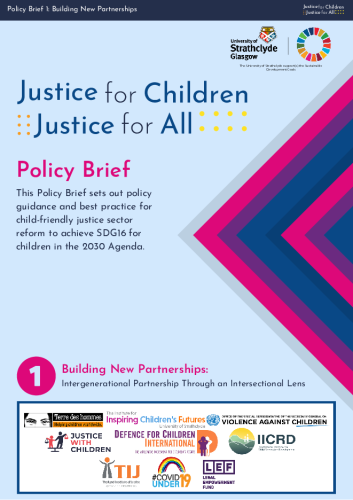Intergenerational partnerships are emerging as a promising trend in the post-pandemic world.
Achieving justice for children, for a peaceful, just and equitable future, requires more coherent and inclusive justice systems. Justice sector reform starts with building the foundations of new partnerships with children and young people, particularly those with lived experience of justice systems. A shift in the paradigm from child participation in adult justice processes, to partnerships with children, is necessary to improve access to justice for all.
This policy brief considers what good intergenerational and intersectional partnerships with children and young people look like, applied in the context of children and justice systems.
It starts by defining key concepts and elements for meaningful partnerships–including a set of ‘ingredients’ defined by children and young people themselves. This is followed by prompting questions for child-friendly justice decision-making. Finally, building new partnerships with children is often about amending processes alongside policies. And so, this policy brief highlights promising practice examples in a range of different thematic, national, and regional contexts.
This policy brief offers priorities and recommended actions for child-friendly justice system reform, aimed at policymakers and supporting bodies engaged in policy processes related to justice with, and for, children.
